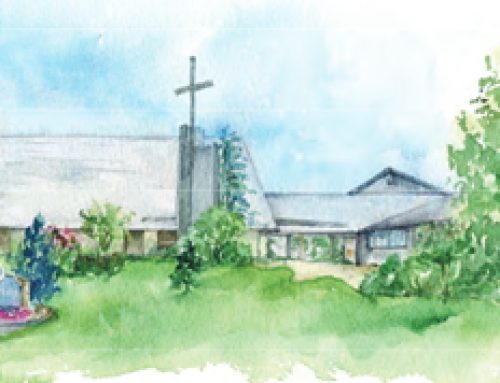FROM THE PASTOR’S DESK
My Dear Parishioners:
One of the ways to read today’s gospel of the wedding at Cana is to see it as a model for prayer. We often ask God in prayer for what we need, and in today’s gospel, Mary asks Jesus for what she needs. Therefore, I believe it would be wise for us to follow the way that Mary’s request plays out.
But to do this, we must start at the beginning. The first line of today’s gospel is, “There was a wedding at Cana in Galilee, and the mother of Jesus was there. Jesus and his disciples had also been invited to the wedding.” This opening of the gospel implies that Mary was at the wedding before Jesus and his disciples arrived and perhaps before any of the guests arrived. It is possible that the young couple to be married had asked Mary to coordinate the celebration of their wedding, to serve as a kind of wedding planner so that all the bases were covered. And all the bases were covered until the wine ran out.
Now, the story doesn’t tell us why the wine ran out, although some have suggested that the twelve thirsty fishermen that Jesus brought with him drank a lot more than anyone had expected. But when the wine did run out, it was possible that Mary saw it as her responsibility, as her need to make things right. So, she turns to Jesus and says, “They have no wine.” Just as we ask what we need from God, in this story, Mary asks what she needs from Jesus.
Two surprises flow from Mary’s request. The first surprise is Jesus’ response. We would expect that Jesus would be deferential and helpful towards his mother, but this is not the case. Jesus says to her, “Woman, how does this concern of yours affect me?” There is no indication in Jesus’ response that he has any intention of helping his mother. That is the first surprise. The second surprise comes from Mary. She moves ahead as if Jesus is going to help. She tells the servants, “Do whatever he tells you.” So, the pattern of this story is this: Mary asks Jesus for help. He says no. And Mary moves ahead as if he said yes. Why would she do this? Mary understands what is in Jesus’ heart. She understands that he loves her and loves the young married couple. Therefore, although it seems that he has said no, Mary is confident that he will say yes.
This experience of Mary is a helpful model for us as we turn to God for what we need. There are a lot of things we need in our life. Maybe we need a job. Maybe we need a cure for a sickness or peace in our family. So, we turn to God and ask God to help us. But sometimes it seems that God is not interested in helping us. Sometimes things stay the same or get worse. Instead of an encouraging answer, we are faced with a deafening silence. Sometimes when we ask God for help, it seems that God says, “No.”
It is then that we should follow the example of Mary. It is then that we should look beyond what seems like a negative response and move forward, confident that God will act. Like Mary, we should remember what is in God’s heart. We should remind ourselves that God loves us and loves all the people in our lives who we love. Because of God’s love we move forward, convinced that God will do something, and that something will be for our good.
Jesus, of course, did do something at Cana, and there was wine for everyone. But that would not have happened had not Mary moved forward in faith and told the servants to do whatever he told them. So, pray. And when God says “No,” move forward in the confidence that God will say, “Yes.”
Peace,
Fr. Monteleone
To read complete bulletin click here



